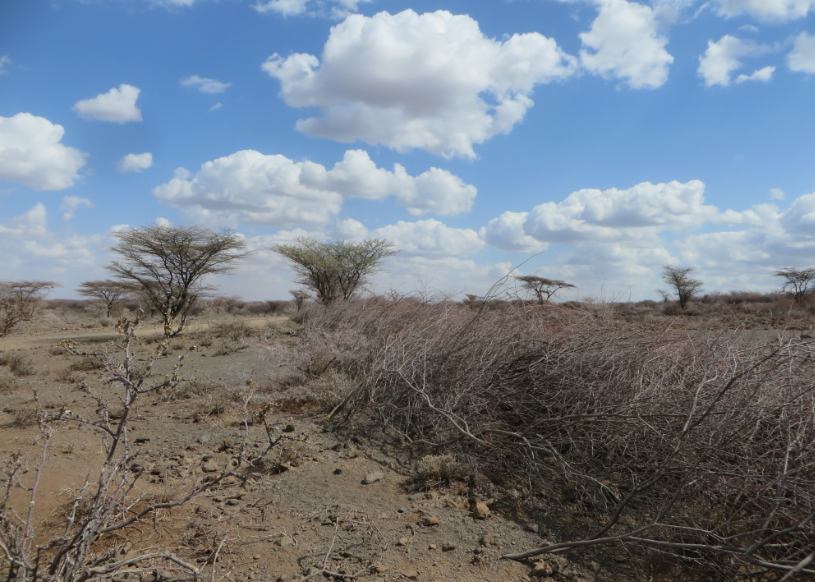

Years of overgrazing and poor grazing land management has resulted in the degradation of significant parts of the rangeland ecosystem around Mt. Kulal, a critical resource for the local communities depending largely on pastoralism for livelihood.
This project applied community-based ecosystem restoration techniques and approaches to help revive grazing fields. This is the process of assisting the recovery of an ecosystem that has been degraded, damaged or destroyed through a combination of different techniques. In this project the following techniques were employed:
- Pasture enclosures to enable portions of grazing land recover without disturbance and for local grasses to mature and deposit their seed for natural regeneration.
- Reseeding of heavily degraded pasture lands with local grass species to aid recovery after rains.
- Customary community-managed wet-season dry-season grazing patterns to enable sustainable exploitation of pasture and seasonal recovery.
- Functional traditional or customary resource management systems.
- Material and labour for construction of enclosures.
- Availability of the right type of pasture seeds and technical support from ecological experts in rangeland management.
- Community buy-in and collaboration.
There exists deep customary knowledge and skills on pastureland management that needs to be tapped into for sustainable management and it needs to be packaged and integrated with modern techniques.